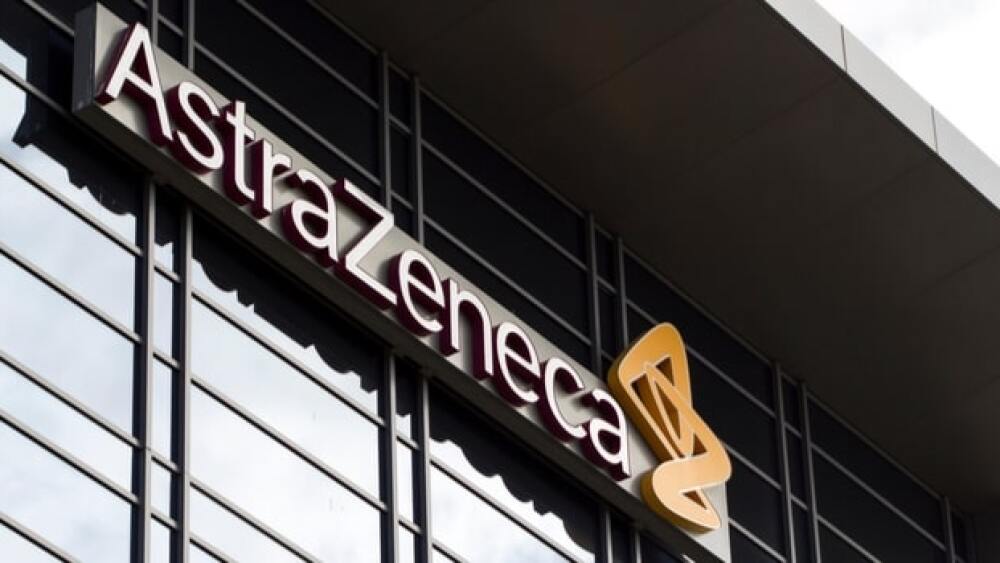AstraZeneca’s diabetes drug Farxiga (dapagliflozin) failed to reach endpoints in a Phase III study as a potential treatment for hospitalized COVID-19 patients serious risk of developing complications.
Tada Images/Shutterstock
AstraZeneca’s diabetes drug Farxiga (dapagliflozin) failed to reach endpoints in a Phase III study as a potential treatment for hospitalized COVID-19 patients serious risk of developing complications.
AstraZeneca, which had partnered with Saint Luke’s Mid America Heart Institute to conduct the study, announced the negative outcome this morning. The failure follows the continued difficulties the U.K.-based pharma company has had with its COVID-19 vaccine in parts of Europe and Asia.
In the announcement, AstraZeneca said Farxiga did not achieve statistical significance in the Phase III DARE-19 study after a 30-day period. The primary endpoint of the study was the prevention measuring organ dysfunction and all-cause mortality. Additionally, AstraZeneca said Farxiga fell short in assisting hospitalized patients with recovery.
The safety and tolerability of Farxiga remained consistent with the well-established safety profile of the medicine.
Farxiga is a first-in-class, oral, once-daily SGLT2 inhibitor. The drug has been approved by the U.S. Food and Drug Administration to reduce the risk of hospitalization for heart failure in patients with type 2 diabetes and established cardiovascular disease or multiple cardiovascular risk factors.
The DARE-19 study was the first late-stage study that evaluated the safety and efficacy of SGLT2 inhibitors in 1,250 hospitalized COVID-19 patients who had the risk factors in developing severe complications.
Patients who were enrolled in the study had a medical history of cardiac, renal, and metabolic comorbidities, including hypertension, heart failure, chronic kidney disease and atherosclerotic cardiovascular disease. These comorbidities can lead to the death of patients.
The full data from the study was not provided by AstraZeneca this morning. The company said it intends to share the complete data at the American College of Cardiology Scientific Sessions in May. Mene Pangalos, AstraZeneca’s executive vice president of BioPharmaceuticals R&D, noted that until AstraZeneca launched the Phase III study, there was little data on the use of SGLT2 inhibitors in hospitalized COVID-19 patients. Even with missing the study’s primary endpoints, Pangalos said the study has helped fill a “knowledge gap” as the world continues to grapple with the COVID-19 pandemic.
Farxiga certainly isn’t the only drug thrown at COVID-19 to fail in clinical studies. Emergent BioSolutions recently saw the failure of its immunoglobulin treatment against the novel coronavirus. Other companies have fallen short as well. In March, BioSpace tallied up the number of failed studies, which can be found here.
“DARE-19 provided important data on the potential benefits and risks of using SGLT2 inhibitors to treat hospitalized patients with COVID-19. While the trial did not achieve statistical significance, the findings are very interesting and valuable, and will inform future clinical science,” Mikhail N. Kosiborod, cardiologist at Saint Luke’s Mid America Heart Institute and principal investigator of DARE-19, said in a statement.
There is a question of whether or not SGLT2 inhibitors such as Farxiga can increase the risk for a rare complication in diabetes patients with COVID-19. In January, a study at Brigham and Women’s Hospital in Massachusetts identified a rare side effect in five COVID-19 patients taking SGLT2 inhibitors. These five patients developed a side effect known as euDKA, or euglycemic diabetic ketoacidosis. As BioSpace reported at the time, the researcher believes COVID-19 may “increase the risk of euDKA by binding to cells on the pancreas that produce insulin.”





